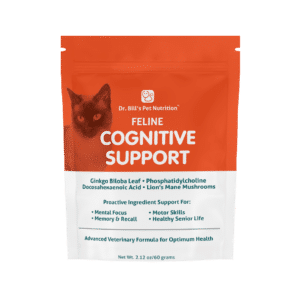The age-old question on whether if dogs or cats are more intelligent has historically been left up to debate. In addition, due to society’s inclination to categorize ourselves as “cat-people” or “dog-people”, it’s difficult for personal bias to not enter the argument. However, scientific research has recently provided a clear answer on which pet is smarter based on the amount of neurons in the dog and cat’s cerebral cortex. Let’s explore these findings and detail which specific attributes each animal species excels in.
How Smart Are Dogs and Cats?
One of the most thorough studies on this topic was performed by PBS NewsHour when they recruited a neuroscientist, an expert in canine cognition, and a feline cognition researcher. Neurologist Suzana Herculano-Houzel explains, “Neurons are the basic information processing units. The more units found in the brain, the more cognitively capable the animal is.” Upon liquifying brains of deceased dogs and cats, the neuroscientist dug deep into gray matter and individually counted the amount of neurons that each species possesses.
While the physical size of dog brains are larger than that of cat brains, their brains also seem to contain nearly twice the neurons than that of their feline counterparts. Canine brains tend to hold an average of 530 million cortical neurons, compared to cats which tend to average roughly 250 million cortical neurons. To understand these findings a bit more, it’s important to note that the average human brain holds roughly 16 billion neurons in the cortex. Additionally, these numbers vary drastically as some golden retrievers have been shown to hold nearly 650 million neurons in their cerebral cortex.
What Determines Pet Intelligence?
While being an important factor, cortical neurons alone don’t determine the overall intelligence of an animal. Cats and dogs can show both individual and similar intelligent traits, making it generally difficult to definitively call canines smarter than felines. For example, cats have been observed to be particularly intelligent in the following areas:
- Object permanence, such as knowing an object exists even if they can’t see it.
- Cats are a more independent, curious, and stubborn species.
- Cat are able to recognize specific people by their voices and can even understand some human languages.
- Cats commonly imitate their owners actions.
On the other hand, dogs have been observed to be particularly intelligent in the following areas:
- Dogs were domesticated before any other animal, showing they they realized domestication as a survival opportunity.
- Dogs can comprehend human language and mimic behaviors.
- Dogs take on working roles in fields such as police work, hospitality, and much more. German Shepherds are known for this in particular.
- Canines can be taught to interact with computers.
Both dogs and cats are uniquely evolved to solve specific problems, although, when looking at the data, dogs clearly have the intellectual upper hand.
What Can I Do To Make My Cat or Dog Smarter?
Tactics you could implement to bolster your pet’s cognitive skills include:
- Increase playtime and exercise to keep your pet both mentally and physically stimulated.
- Conduct a canine intelligence test (consider their breed when doing this).
- Healthy food will help keep your pet’s brain in ideal shape.
Additionally, similar to dementia in humans, our pet’s brain function slowly declines as they age. This condition is scientifically termed Cognitive Dysfunction, or the deterioration of cognitive abilities characterized by behavioral changes such as memory loss and diminished motor function. Even well socialized pets may become irritable, withdraw from their owners and favorite activities, or fail to notice things that used to interest them like the doorbell ringing or greeting visitors.
Dr. Bill’s Cognitive Support helps slow this cognitive decline and improve motor function. Giving your pet a pill can be a challenge, that’s why most of our supplements are formulated as a powder that can be sprinkled dry onto any diet or moistened to make a tasty, nutritious broth. It’s easy and pets love the flavor. Providing our dogs and cats with additional antioxidants and specialty nutrients to maintain normal brain function and neurotransmission is critical, and sadly cannot be found in commercially manufactured diets. Dr. Bill’s Canine and Feline Cognitive Support has proven to be superior in maintaining and even reversing the signs of cognitive dysfunction.
-
Canine Cognitive Support$44.99 — or subscribe and save 10%
-
Feline Cognitive Support$17.49 — or subscribe and save 10%











0 Comments